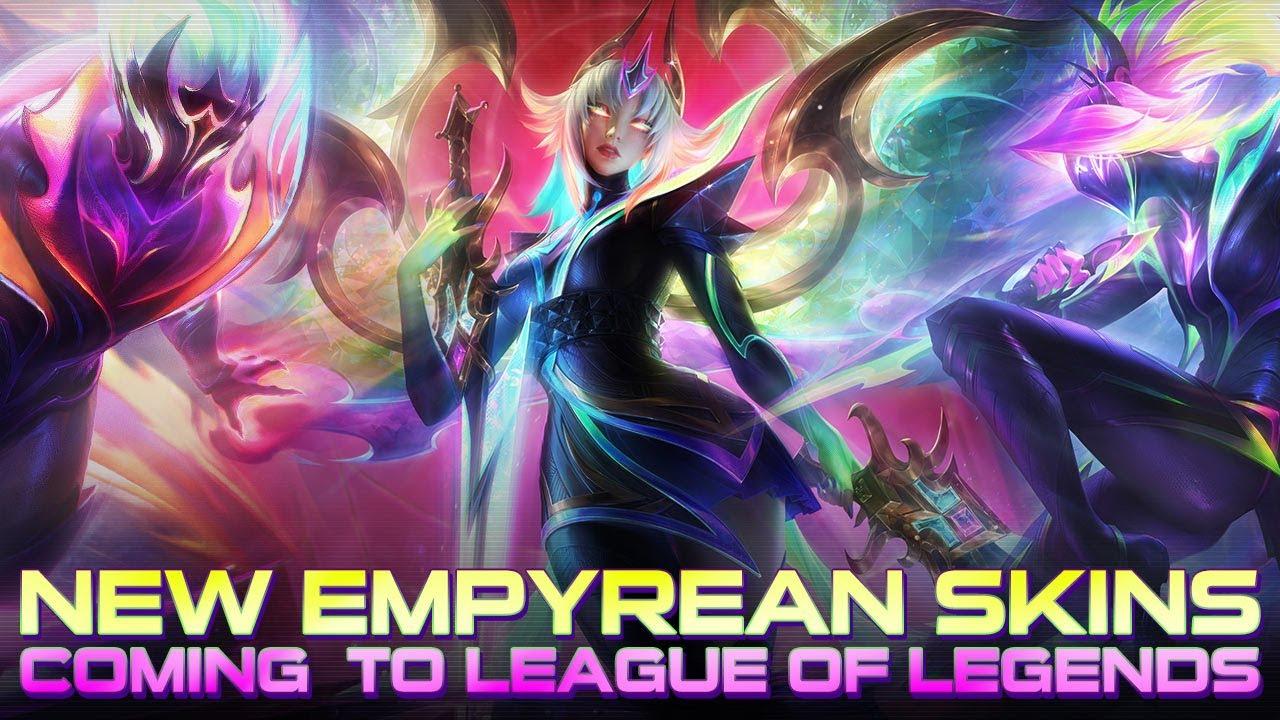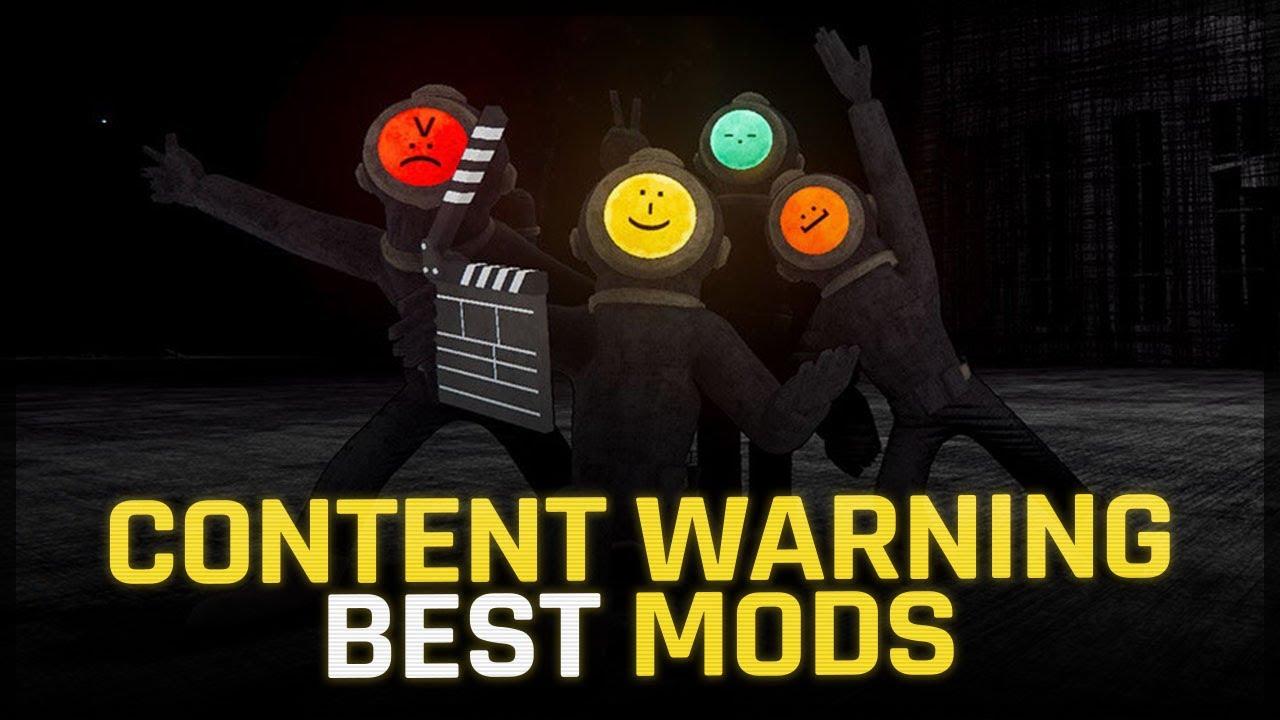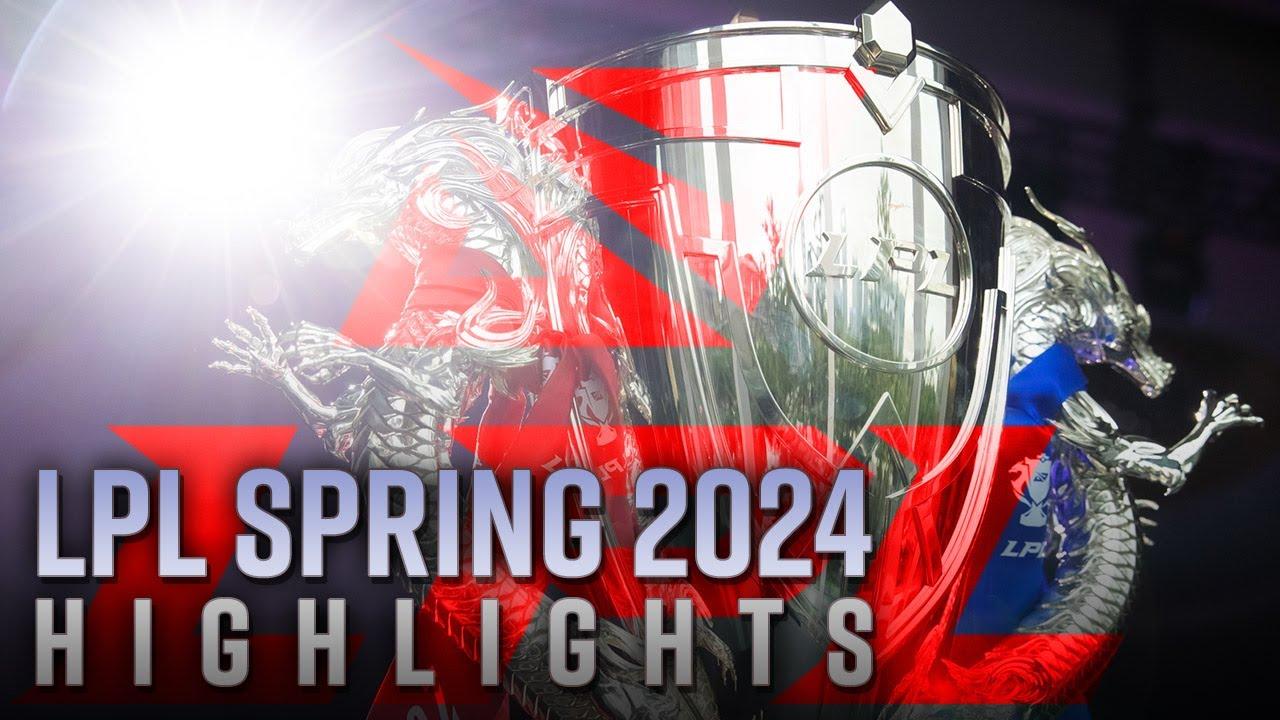
Riot deletes voice chat tweet after fan backlash
Riot Games posted a tweet yesterday joking about players not using voice chat during ranked games. The tweet was quickly deleted after fans, former Rioters, and community members took umbrage with the tone of the post.
Between toxicity in Valorant voice chat alongside a $100 million settlement for gender discrimination, League of Legends’ decade-long lack of team-wide voice communication, and the difficulty of implementing these systems, there were plenty of reasons why the Riot voice chat tweet came across as tone-deaf.
Riot voice chat tweet meets mockery
The now-deleted tweet by Riot Games asked what players’ New Year’s gaming resolution was, poking fun at players not using in-game voice communication during ranked play followed by an angry emoji with a censored speech bubble.
While the post was likely meant to reference Valorant, League of Legends fans have been asking for optional team-wide comms for years while Riot has failed to deliver it.
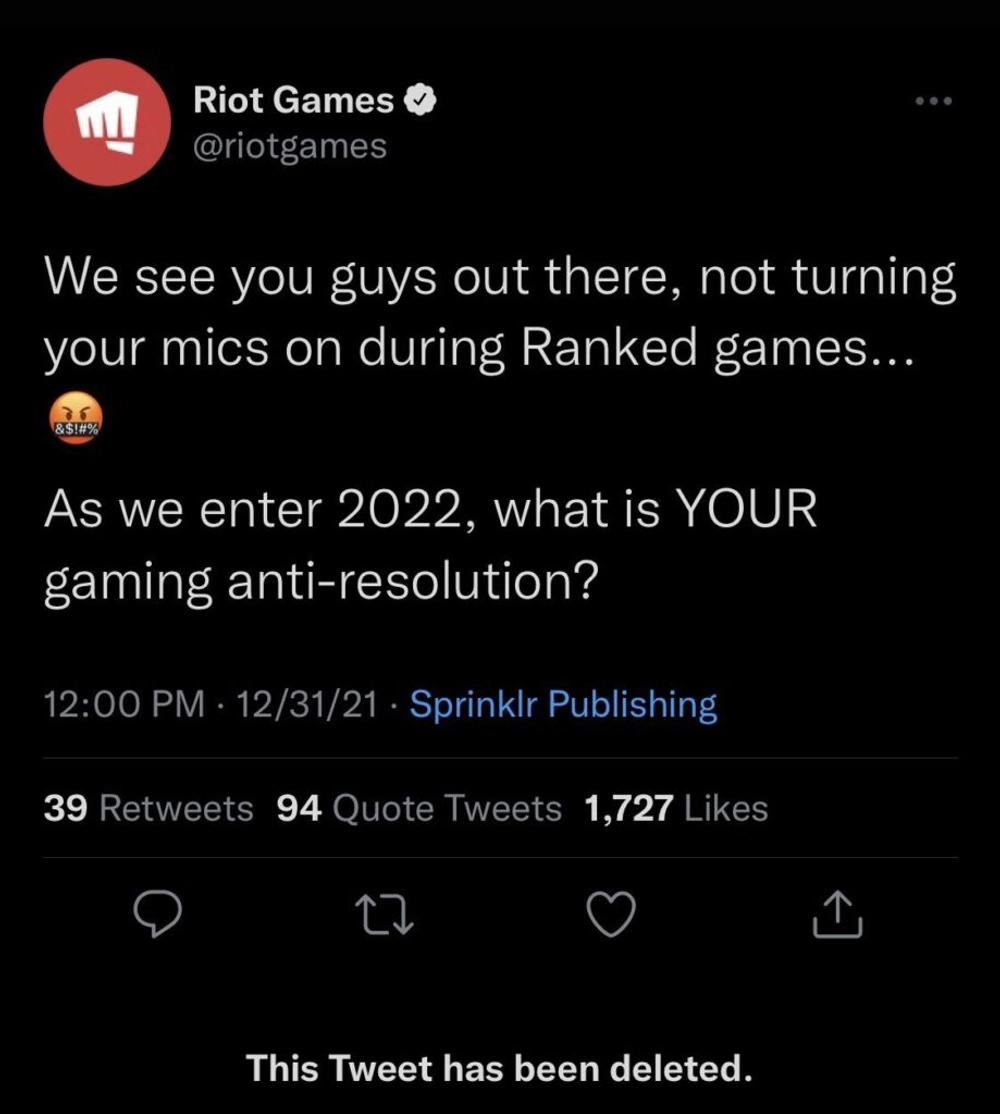
At the same time, recent community discussion around women-focused esports and women’s experience in gaming spaces has shown exactly why voice chat can be an incredibly unpleasant experience for women. This, paired with Riot Games’ $100 million dollar settlement for gender discrimination against women meant plenty of women let Riot know exactly why they avoided using their microphones in ranked games.
Ex-Rioters mock tone-deaf tweet
Fans weren’t the only ones to speak up against Riot’s tweet, with the former senior designer at Riot Games, Naomi McArthur, now of Amihan Entertainment, joining the criticism. Having worked on voice chat systems as a member of the Player Behavior and Systems Analysis wing at Riot, McArthur made clear that there’s a trove of reasons why voice chat is a poor idea for the MOBA.
Riot seems to have realized why the post wasn’t a good idea, but fans are still discussing it. Even LCS caster Clayton “CaptainFlowers” Raines joined the criticism, which is well out-living the tweet.
Recommended
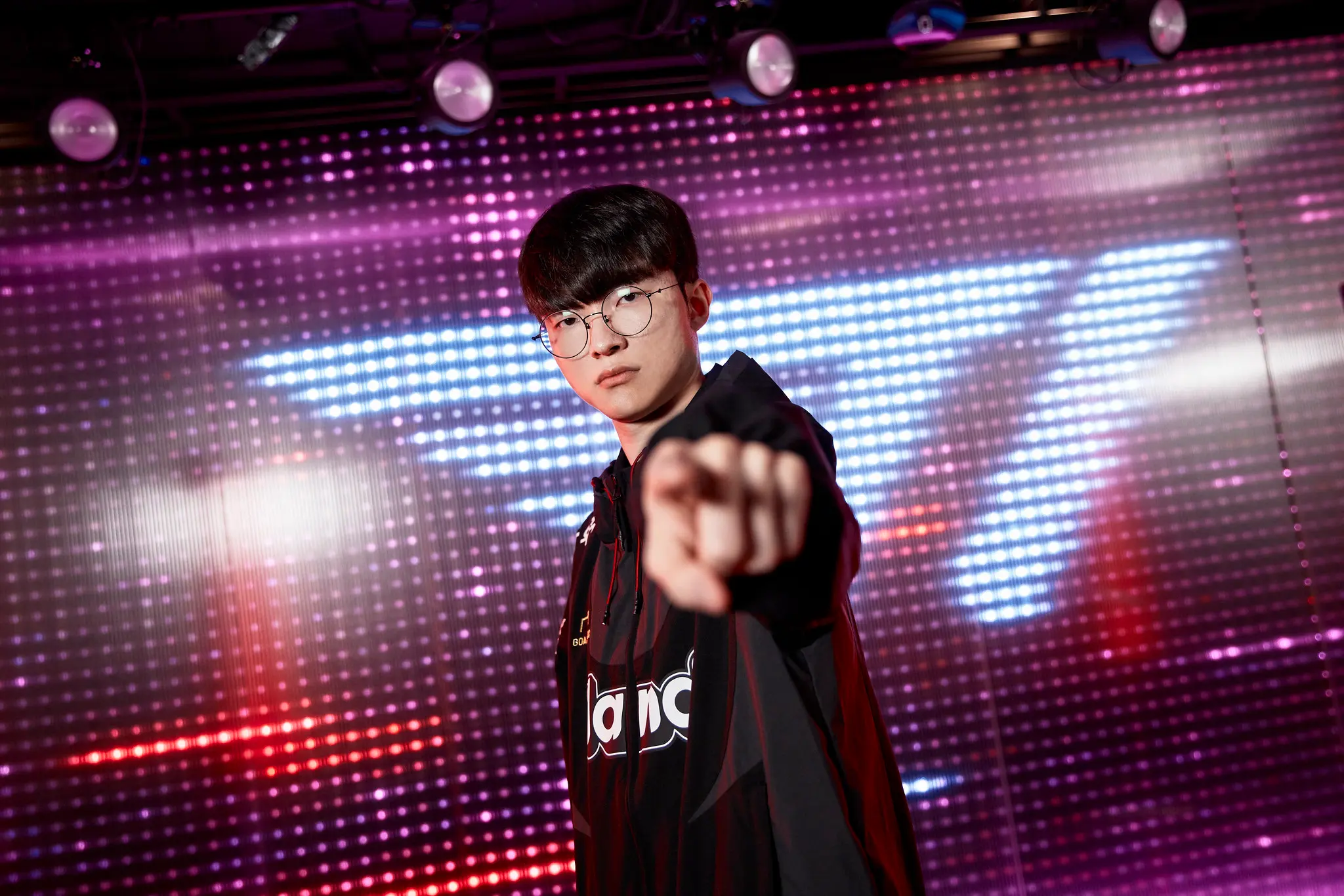
Worlds 2023 Knockout Pick’em predictions
Time to pick the winner of Worlds 2023!

NRG defeats G2 Esports at Worlds 2023
NRG is keeping the NA faith alive!

T1 moves to Knockout Stage at Worlds 2023
Faker and company do not dissapoint!


